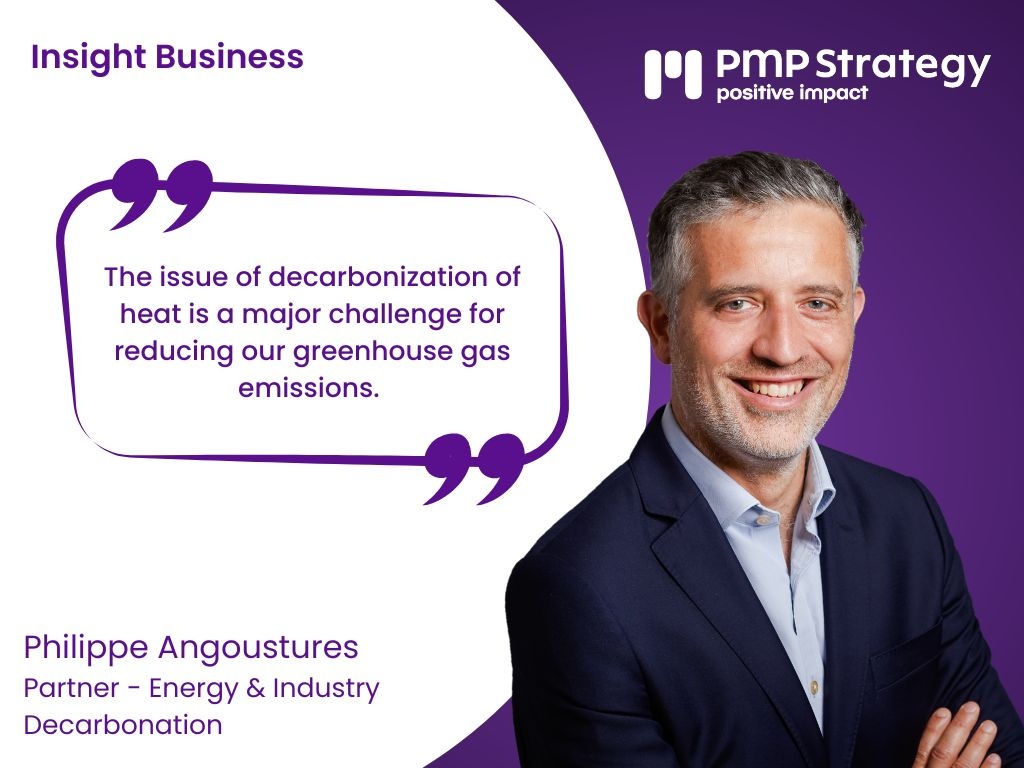A more important issue than wind and solar energy for the reduction of our greenhouse gas emissions
When talking about the energy transition, the media often mention the development of renewable solar and wind energy. What should be their share in the future mix? Should we shorten the installation time? Are they less expensive than nuclear power?
Let’s not forget that we are talking about electricity production and that in a country like France, where nuclear and hydraulic power are supposed to represent more than 3/4 of the production, this development consists in decarbonizing something that was already decarbonized.
Another theme is less often mentioned, that of heat. More than 40% of the energy consumption of tertiary and residential buildings is of fossil origin and is used to produce heating and domestic hot water for a total of nearly 400 TWh, which is about the entire national electricity production.
The issue of decarbonization of heat is therefore a major challenge for reducing our greenhouse gas emissions.
Overview of the main technologies available
Electric heating: well known by the French, consuming a mostly decarbonated electricity, has made significant technological progress in terms of comfort. On the other hand, it is very expensive to replace a hot water circuit and its development would quickly pose problems of security of supply.
Heating networks: adapted to very dense areas, they are likely to develop significantly in city centers if public aid (mainly the Heat Fund) supports this trend. On the other hand, the decarbonization of their heat production is far from being completed and assumes a combined development of biomass plants, waste incineration, geothermal energy and recovery of waste heat, which will make their development complex.
Aerothermal heat pumps: benefiting from strong public support, relatively inexpensive and capable of air conditioning the home in summer (reversibility), they are experiencing very strong growth in individual housing or new construction. However, they have difficulty meeting 100% of heating needs during periods of extreme cold and can be difficult to integrate into older buildings.
Biomass: considered as renewable energy by the regulations, its combustion is nevertheless CO2 emitting and the extension of its use could quickly pose supply problems in order not to consume more resources than those naturally produced. In addition, it often poses problems of acceptability to local residents. Its use is adapted to the supply of heating networks on the scale of a city, a district or at least a large group of buildings (university hospitals, urban development zones, etc.), even if wood stoves are also experiencing strong development in supplementary heating.
Geothermal energy: the least developed technology to date, it is nevertheless the one that offers the best energy yields and ensures the greatest decarbonization of heat. In particular, surface geothermal energy can be deployed in more than 90% of the territory and can provide air conditioning in addition to heating. However, it remains expensive to deploy, and a geothermal plan has just been announced by the government to support its development.
The need to act on multiple fronts
As we can see, there is no single answer to replace fossil fuels for heat production.
Nevertheless, some courses of action are already clear and open up important market opportunities that will encourage the arrival of new entrants:
- Action to be designed locally: in order to exploit local resources, to involve stakeholders, to design solutions in line with the specificities of the territory
- A need to support investments by combining public aid (heating fund) and the call for private investments wishing to be remunerated on an “As A Service” energy offer
- A capacity to design hybrid solutions to cover needs with the optimal combination of technologies
- Greater use of data and artificial intelligence to optimize the sizing of facilities and their operating costs
Philippe Angoustures, Energy & Industry Decarbonization Partner at PMP Strategy






